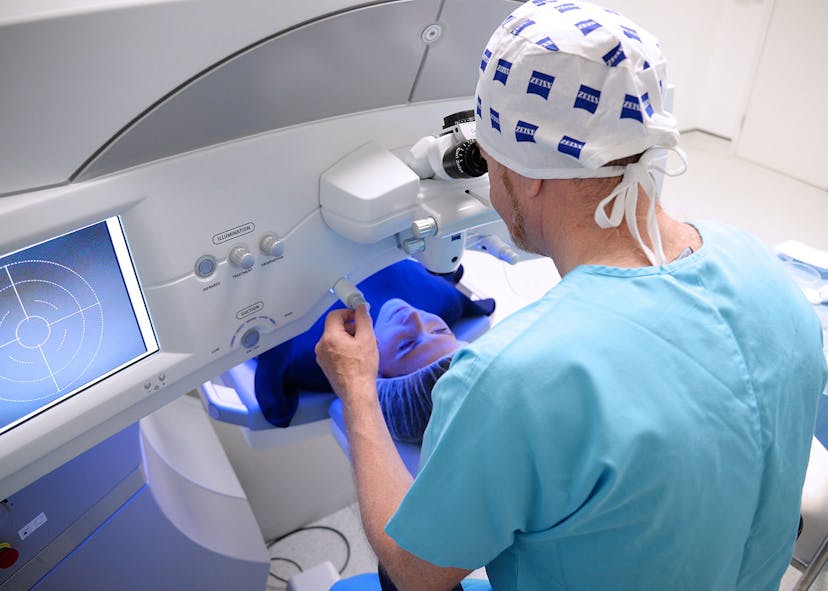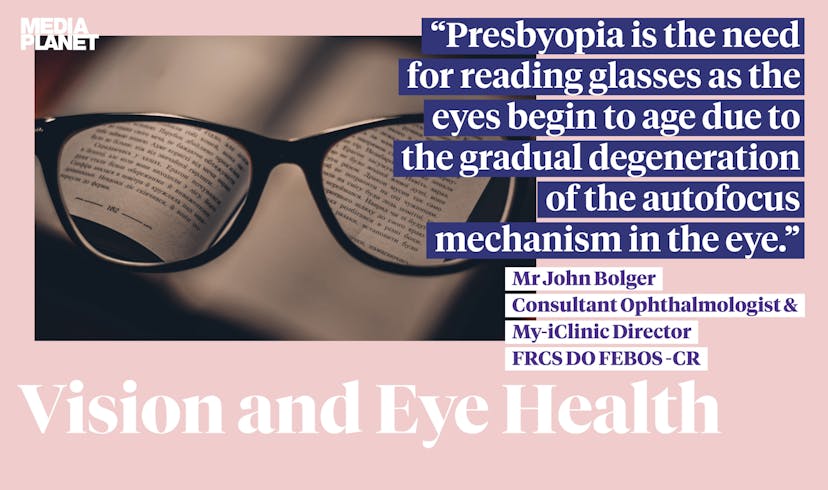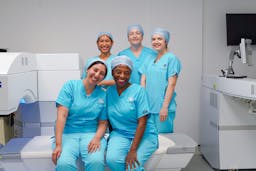
Forget What You Think You Know About Laser Eye Surgery
Most people are not aware of the advances in laser eye surgery that have taken place in the last couple of years.
Different types of lasers are used extensively in all types of eye surgery from cataracts to glaucoma to floaters to diabetes.
Each laser is completely different and has unique properties which are utilised to deliver the treatment for the different eye conditions.
To an eye doctor, laser eye surgery means treating someone with one of the conditions above but to the layman, it usually means laser surgery to get rid of glasses.
Refractive Laser Surgery
This surgery, called Refractive Laser Surgery, is carried out by eye doctors (ophthalmologists) specialising in this area of eye surgery. Just like all areas of ophthalmology, it is a very precise sub-specialty requiring long training and study to become proficient.
But, unlike the other areas of ophthalmology where lasers are used, Refractive Laser Surgery to get rid of glasses has suffered a bad press in the past while laser for cataracts or glaucoma is perceived as a beneficial breakthrough.
Many people have heard the urban myths about how someone had laser eye surgery and had poor vision afterwards, while very few people have heard stories about someone getting an eye infection from their contact lenses leading to permanent damage to their sight.
Laser Vision Correction Lasts
Everybody’s vision fluctuates over time. Even people who do not need glasses have fluctuations in their refraction. However, once the eye is focused within the spectacle-free zone it is highly unlikely that the normal fluctuations would cause the eye to wander out of the zone where glasses or contacts are necessary.
Laser eye surgery will put the focus of the eye into the spectacle-free zone where it should stay indefinitely.

Contact Lenses Are Riskier
Triathletes who need contact lenses would be taking less risk with their vision by having laser eye surgery rather than wearing contact lenses to correct their eyesight.
Contact lenses are safe but not risk-free. Soft contact lenses can allow an infection to get hold of the cornea with minimal symptoms. Prompt treatment is necessary combined with stopping lens wear to bring about recovery and the avoiding of permanent damage.
The risk of losing some vision permanently due to complications of contact lens wear is about the same as having laser surgery and in fact, some experts believe that laser is actually safer. Contact lens risks greatly increase if the wearer swims while wearing them. This risk is greatest when swimming in open water such as a lake or river.
This means that triathletes who wear soft contact lenses are more at risk of irreversible vision loss than someone who is having laser vision correction. Taking this to its logical conclusion laser vision is safer.
And with it comes the benefit of being free of the hassle of contact lenses or glasses.
It’s Not Painful
The laser treatment with the early machines was very painful for a few days. But the modern lasers have very little discomfort and healing is almost instantaneous.
The latest method called Small Incision Lenticule Extraction (SMILE) causes minimal discomfort on the day and the dry eye symptoms associated with LASIK are much less and shorter lived.
People who have SMILE can resume normal activities on the same day. And, because there is no flap lifted off the cornea, contact sports can be engaged in again safely.

It’s Not Expensive
Over approximately a four-year period someone with moderate myopia and a small amount of astigmatism will spend more money on their contacts than if they have SMILE laser vision correction.
And the same is true with glasses unless they don’t want the best quality lens in designer frames. And frames go out of fashion.
It’s For Everybody
There was a time when only celebrities or top athletes had laser vision correction. But today it is for anyone who has poor vision without glasses or contacts. It’s ideal for busy people in their 20s or 30s who can become completely spectacle free.
Moreover, people in their 40s or 50s who are beginning to have problems with their reading glasses can have laser surgery to give them clear vision at all distances, near, intermediate and far. There is even an option for people who have extreme short sight.
Over one million people have had SMILE laser surgery already and tens of millions of patients have had laser eye surgery since it became available. Fewer people have complications from modern laser eye surgery than have complications from contact lens wear.
For moderate to severe myopia contact lenses or glasses do not provide a cure, they merely make the condition survivable.

10 Facts About Laser Eye Surgery
1. Laser eye surgery, also known as refractive surgery, is a common procedure aimed at correcting various vision problems, including nearsightedness (myopia), farsightedness (hyperopia), and astigmatism.
2. The most popular types of laser eye surgery are LASIK (Laser-Assisted In Situ Keratomileusis) and PRK (Photorefractive Keratectomy). LASIK is more commonly performed due to its quicker recovery time and minimal discomfort.
3. Before undergoing laser eye surgery, a comprehensive eye examination is conducted to determine the patient's candidacy for the procedure. Factors such as age, prescription stability, and corneal thickness are considered.
4. The surgery itself is typically quick, usually taking about 10 to 15 minutes per eye. Patients are often given a mild sedative to help them relax during the procedure.
5. During LASIK surgery, a thin flap is created on the cornea, and the underlying corneal tissue is reshaped using a laser to correct the refractive error. In PRK, the surgeon removes the epithelial layer of the cornea before reshaping it with the laser.
6. Laser eye surgery is usually painless, though patients may experience some pressure or mild discomfort during the procedure. Anaesthetic eye drops are used to numb the eyes and minimise any potential pain.
7. Most patients experience improved vision immediately after the surgery, but it may take a few days for the full effects to become evident as the eyes heal and adjust.
8. Recovery time varies depending on the type of surgery performed. LASIK generally offers a faster recovery, with many patients resuming normal activities within 1 to 2 days. PRK requires a longer recovery period, often taking up to a week or more.
9. While laser eye surgery can significantly reduce the need for glasses or contact lenses, it may not completely eliminate the need for them in all cases. Some patients may still require glasses for certain activities or experience mild residual visual issues.
10. As with any surgical procedure, there are risks associated with laser eye surgery, including dry eyes, halos, glare, and possible undercorrection or overcorrection of vision. However, the vast majority of patients are highly satisfied with the results and experience improved vision quality and reduced dependency on corrective eyewear.
It's crucial to discuss the potential risks and benefits of laser eye surgery with a qualified ophthalmologist or eye surgeon before making a decision. Each individual's case is unique, and not everyone may be an ideal candidate for the procedure.
ReLEx SMILE laser vision actually gives you the vision you were always supposed to have. Take charge of your vision and unlock a world of possibilities with My-iClinic Laser Eye Surgery. Contact us today, and together, let's bring clarity back into your life!

Find out more by Speaking to our team
You may also like








